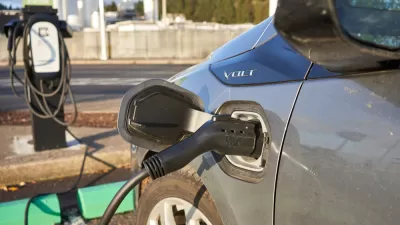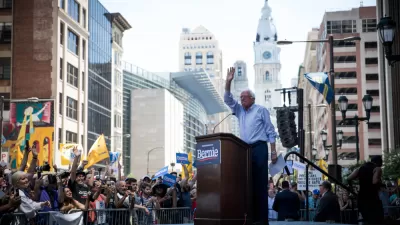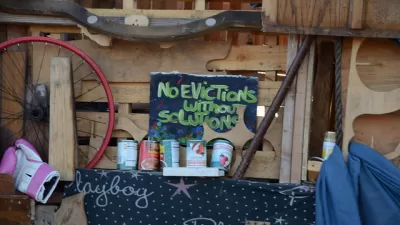Critics of the earliest Democratic candidate debates have noted a conspicuous lack of substantive and concentrated discussion on one of the great existential threats of the era: climate change. Neglect of the subject could change soon.

The Democratic National Convention decided in June not to have an entire debate devoted to climate change, and CNN is stepping in to fill the void, with a town hall totaling seven hours of coverage devoted to a series of discussions of the topic by individual candidates. Writing for Vox, Umair Irfan explains the format of the event and also sets the television coverage in context. "That a major television network would devote so much time to a single issue is a sign of how important climate change has become for Democrats and how successful activists have been in elevating the issue."
Writing in a separate article for Curbed, Alissa Walker surveys the climate policy proposals of eight of the ten Democratic candidates for president that will appear at the next debates on September 12. On the same day of the article's publication, the remaining two candidates who hadn't yet released climate plans, Senator Kamala Harris and Mayor Pete Buttigieg, did so.
Coral Davenport and Lisa Friedman provide coverage of Harris's climate plan for The Washington Post. Umai Irfan provides coverage of Buttigieg's plan for Vox.
Writing for CBS News, Grace Segers also provides comprehensive coverage of the climate stances of the Democratic candidates.
FULL STORY: Where the Democratic candidates stand on climate policy

Planetizen Federal Action Tracker
A weekly monitor of how Trump’s orders and actions are impacting planners and planning in America.

Maui's Vacation Rental Debate Turns Ugly
Verbal attacks, misinformation campaigns and fistfights plague a high-stakes debate to convert thousands of vacation rentals into long-term housing.

Restaurant Patios Were a Pandemic Win — Why Were They so Hard to Keep?
Social distancing requirements and changes in travel patterns prompted cities to pilot new uses for street and sidewalk space. Then it got complicated.

In California Battle of Housing vs. Environment, Housing Just Won
A new state law significantly limits the power of CEQA, an environmental review law that served as a powerful tool for blocking new development.

Boulder Eliminates Parking Minimums Citywide
Officials estimate the cost of building a single underground parking space at up to $100,000.

Orange County, Florida Adopts Largest US “Sprawl Repair” Code
The ‘Orange Code’ seeks to rectify decades of sprawl-inducing, car-oriented development.
Urban Design for Planners 1: Software Tools
This six-course series explores essential urban design concepts using open source software and equips planners with the tools they need to participate fully in the urban design process.
Planning for Universal Design
Learn the tools for implementing Universal Design in planning regulations.
Heyer Gruel & Associates PA
JM Goldson LLC
Custer County Colorado
City of Camden Redevelopment Agency
City of Astoria
Transportation Research & Education Center (TREC) at Portland State University
Jefferson Parish Government
Camden Redevelopment Agency
City of Claremont





























